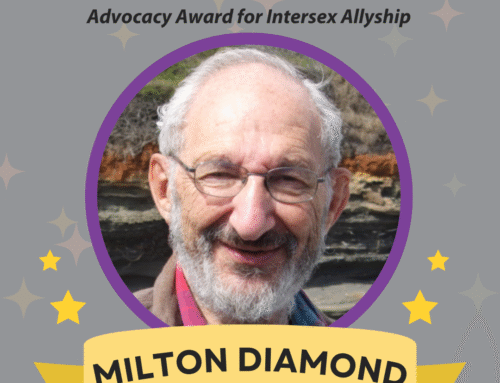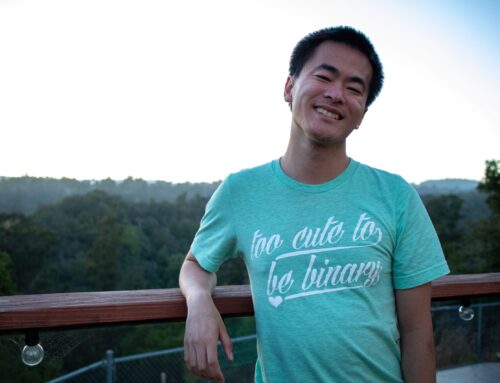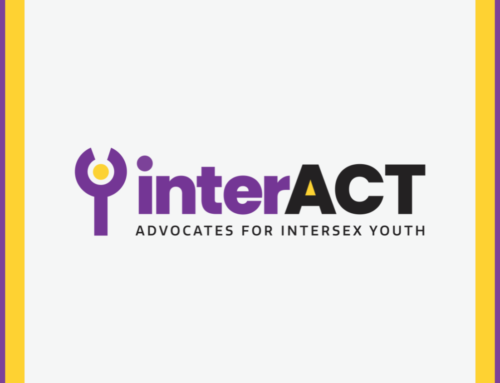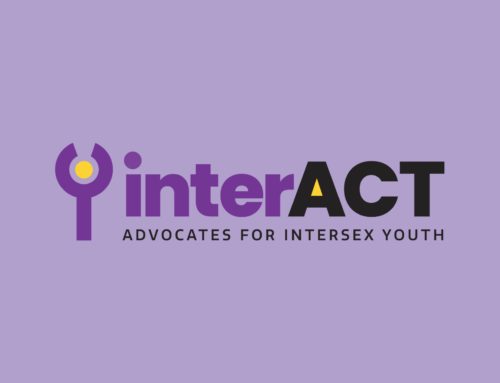By Kimberly Zieselman,
interACT Executive Director
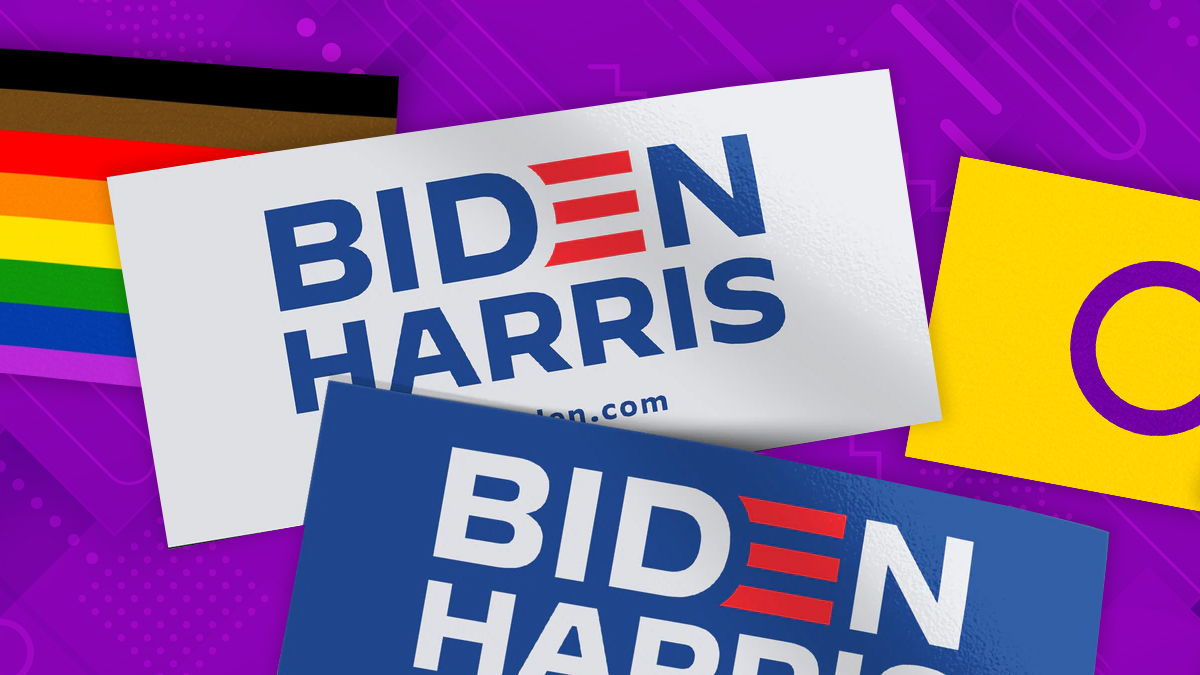
It was a great week. A collective sigh of relief could be heard across the country from at least 74 million Americans. LGBTQ-inclusive candidates President-elect Biden and Vice President-elect Kamala Harris will be leading our nation come January 20th. We will once again have leaders who believe in fighting against systemic racism, that science is real, that healthcare is a right, women deserve bodily autonomy and love is love.
Mr. President-Elect, please don’t leave us behind. The “I” in LGBTQIA+ stands for “intersex,” not invisible.
On Saturday night President-elect Biden gave an energized speech stating, “we are an America that leaves no one behind.” He specifically referred to Americans who are gay or transgender. It was a truly beautiful moment. I woke up the next day full of excitement for the future, but mindful of the work ahead: work that offers an opportunity to uplift the voices of those who have been silenced for so long. Sunday marked the annual global Intersex Day of Solidarity and Remembrance, a day chosen to honor the birthday of Herculine Barbin, a 19th-century intersex person who was forced into the public eye after doctors found her to be a “disordered” oddity. Herculine’s short and often unhappy life highlights the need for increased acceptance of intersex people—a group that makes up nearly 2% of all births. That’s larger than the entire population of Japan, more frequent than the birth of identical twins. It’s about the same number as people born with red hair, or green eyes. Despite an increasing awareness of intersex people over the last few years we are still mostly unknown, misunderstood and forgotten.
Mr. President-Elect, please don’t leave us behind. The “I” in LGBTQIA+ stands for “intersex,” not invisible.
We simply cannot afford to be invisible any longer. Our community has faced decades of discrimination, oppression and erasure. As children we are often subjected to irreversible forced genital surgeries without our consent in an attempt to “fix” our otherwise healthy bodies, leaving nothing but lifelong physical and emotional harms. These procedures to reduce or reshape the genitalia of intersex babies as young as 6 months old— surgeries that cut into the clitoris, vagina, or gonads—have been condemned as a human rights violation by organizations like the United Nations, Human Rights Watch and Physicians for Human Rights. And in 2017, three former U.S. Surgeons General argued that intersex children should not have cosmetic genital surgery performed unless they are old enough to participate in the decision. Yet these harmful practices have continued in hospitals across the country.
As adults, many intersex people struggle with both medical and mental healthcare needs as a result of these harmful early interventions, but have little to no access to desperately needed intersex-affirming healthcare. We have effectively been erased and left to fend for ourselves. The resulting health disparities in our community are shocking. A recent national U.S. study found over 43% of participants rated their physical health as fair/poor and 53% reported fair/poor mental health.
As the Executive Director of interACT: Advocates for Intersex Youth, the world’s largest policy organization representing intersex people, I am finally beginning to see some progress. After years of advocacy, last month the world’s premier children’s hospital in Boston announced it will ban two of the most harmful and invasive genital surgeries on intersex infants and children. In July, another major children’s hospital in Chicago made a similar policy change thanks to years of pressure from the intersex community and our allies. And in 2018 California passed a resolution stating intersex is something to be celebrated, not fixed, suggesting the medical community assess its harmful practices.
Hope is in the air this week. Hope for leadership that respects the civil and human rights of all Americans. Hope that was tragically interrupted when President Trump took office. Former President Obama was the first to light the White House with rainbow colors in celebration of the LGBTQ+ community and the State Department had appointed Randy Berry to the new position of Special Envoy to the Human Rights of LBGT persons. Soon after Mr. Barry wisely included the “I” in his official title, recognizing his mission included protection of the human rights of intersex people abroad. But what about us right here at home?
It’s time for the intersex community to be included. Mr. President-Elect and Madam Vice President-Elect, please don’t forget about us.


